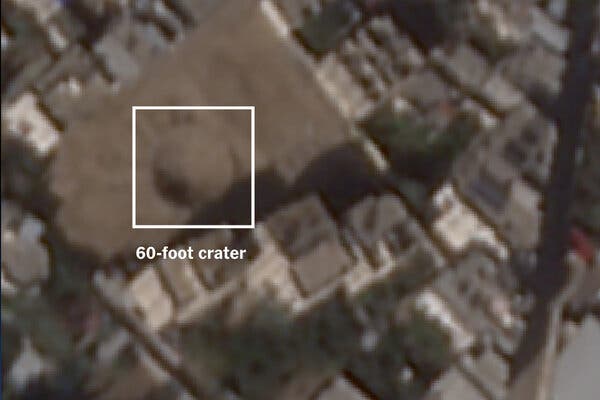In a significant security development, a U.S. citizen has been arrested for allegedly planning to bomb the office of the U.S. Embassy in Israel. The arrest comes on the heels of an extensive investigation by federal authorities, who have expressed concerns regarding the implications of such a plot on international diplomacy and U.S. citizens abroad.
Investigative reports indicate that the accused, whose identity has not yet been fully disclosed, was apprehended following a series of monitored activities that suggested a shift towards violent extremism. The individual reportedly initiated the planning process several months prior, leading to an alarming increase in their online activity, which caught the attention of intelligence operatives.
After conducting thorough surveillance, federal agents uncovered detailed plans outlining the methods and location of the intended attack. These plans further included the purchase of explosive materials, signaling a serious escalation in the individual’s intent. Although the investigation is still ongoing, initial findings suggest that the individual acted independently, and as of now, law enforcement has not identified any accomplices in this plot.
The arrest reflects a growing concern over the potential for domestic extremism to influence threats abroad. Officials noted that as tensions escalate in various regions, including the Middle East, there is an increased likelihood for individuals motivated by extremist ideologies to target U.S. interests. In this instance, the investigation underscores the delicate balance between national security and personal freedoms, particularly in cases involving American citizens who choose to engage in foreign conflicts.
In parallel, authorities are investigating the subject’s online presence to ascertain the potential influence of extremist propaganda. This has become a common thread in many recent cases, where individuals have been radicalized primarily through social media channels. The use of the internet to cultivate violent ideologies remains a substantial challenge for law enforcement agencies, necessitating comprehensive strategies to counteract this threat.
In response to the plot against the embassy, officials have ramped up security measures at U.S. diplomatic locations, particularly in high-risk areas. The U.S. Embassy in Israel has a long-standing history of being a focal point for protests and violence due to geopolitical tensions. Therefore, ensuring the safety of both embassy staff and American citizens visiting the region is a top priority.
The motivations driving the alleged plot are still being examined. Experts in terrorism studies assert that individuals inspired by a mix of political grievances, religious ideology, or personal factors can pose significant threats. In many cases, these individuals may feel disconnected from mainstream society, which can exacerbate their radicalization process. Understanding the nuances of each case is crucial for developing effective intervention strategies.
This incident also prompts a critical discussion about the broader implications for American relations abroad. The U.S. maintains a diplomatic presence in various volatile regions, and threats against embassies can strain international relationships, particularly in regions already fraught with hostilities. In light of this, the State Department has reiterated its commitment to protecting U.S. interests globally while emphasizing the importance of collaboration with local and international law enforcement.
As investigations proceed, the public has been reminded of the vital role played by community vigilance in spotting suspicious activities. Various programs have been initiated across the country encouraging citizens to report concerning behaviors or messages that may indicate violence.
Additionally, experts have advocated for increasing public awareness concerning the signs of radicalization. Educational programs may be necessary in communities where individuals are at risk of being influenced by extremist movements. Public understanding of these dynamics helps bolster collective safety and enhances the ability of authorities to respond proactively.
Moreover, the case has brought renewed attention to the legal and ethical implications of surveillance and intervention methods used by law enforcement. As the line between privacy and security narrows, many advocate for a thoughtful approach that respects civil liberties while ensuring the safety of citizens on domestic and international fronts.
While the individual has been charged with conspiracy to commit an act of terror, it is essential to recognize that due process will follow. The court proceedings will unfold in the coming months, allowing for examination of evidence and the context surrounding the individual’s alleged actions. Such legal proceedings contribute to a more nuanced understanding of the motivations and processes that lead to radicalization.
In summary, the arrest of a U.S. citizen in connection with an alleged plot against the U.S. Embassy in Israel raises critical questions about national security, radicalization, and the challenges posed by international terrorism. Law enforcement authorities remain vigilant in their efforts to thwart similar plots in the future while balancing individual rights with the imperative of public safety. This incident serves as a reminder that the threat landscape is constantly evolving, necessitating ongoing adaptation and cooperation among all stakeholders involved in maintaining security both at home and abroad.



